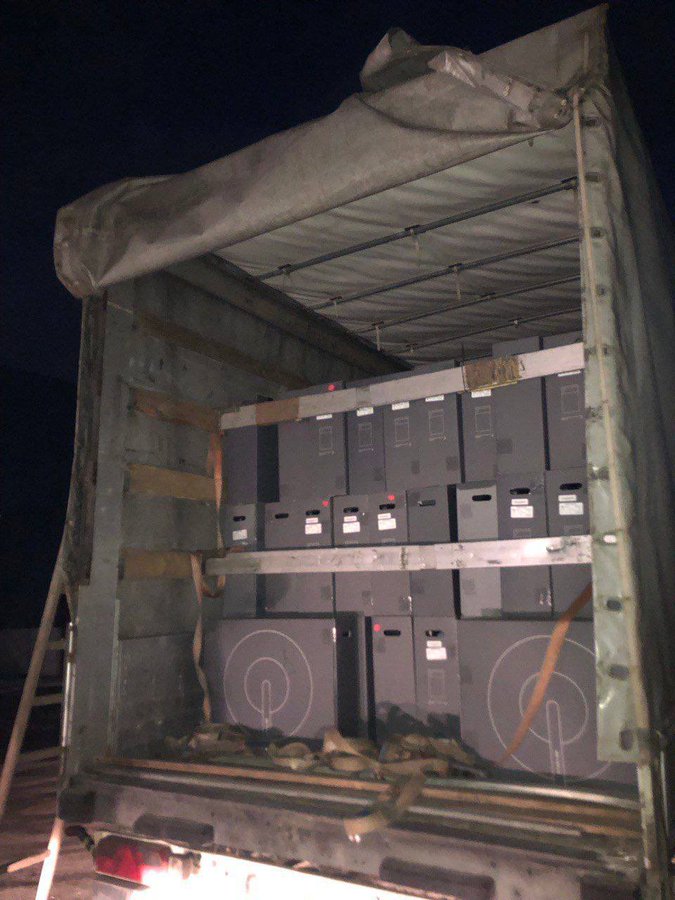Starlink Satellites Trialled By Government For Remote Connectivity

UK government says Elon Musk’s Starlink satellites will form part of its trial to tackle decent broadband connectivity to remote locations
The UK Government has announced plans to boost internet connections in remote and rural locations, utilising broadband beamed from space.
To this end, the government’s Department for Digital, Culture, Media & Sport announced that an initial wave of sites are being supported by equipment supplied by Elon Musk’s Starlink, but the UK was also holding discussions with other providers such as British satellite company OneWeb.
It was back in January 2021 when the UK communications regulator Ofcom approved Space X Starlink satellite broadband service for use in the United Kingdom.
![]()
Rural locations
The government is seeking to ensure everyone can access fast and reliable coverage wherever they live or work.
It said that some of the UK’s most remote homes and businesses will be connected to better broadband, beamed to earth by satellite, as part of a trial officially launched Wednesday will see the extent to which satellites can be used to deliver high-speed connections to more than a dozen ‘very hard to reach’ locations – the less than one percent of sites which are too difficult to upgrade via expensive physical cables in more extreme locations such as mountainous areas or small islands.
This really touch to reach locations include a 12th century abbey in the North Yorkshire Moors National Park, a scout camping site in Snowdonia, and a Lake District mountain rescue base.
These and other remote premises will have equipment installed that allows them to link up to a satellite orbiting the globe and benefit from broadband up to ten times faster than is currently available to them.
Project Gigabit
It comes as the government signs its biggest contract under its £5 billion programme to roll out gigabit-capable connections to hard-to-reach areas, Project Gigabit.
The £108 million contract, awarded to Northern Ireland-based provider Fibrus, will connect up to 60,000 rural homes and businesses in Cumbria which might have otherwise missed out on upgrades to faster gigabit speeds.
“High-speed broadband beamed to earth from space could be the answer to the connectivity issues suffered by people in premises stuck in the digital slow lane,” said Digital Secretary Michelle Donelan.
“Ensuring everyone can get a quality internet connection is crucial to our levelling up plans and these trials aim to find a solution to the prohibitively high cost of rolling out cables to far-flung locations,” said Donelan.
“We are also today kicking off plans for our biggest broadband build to date as we announce another £100 million is being spent as part of our Project Gigabit programme,” said Donelan.
In a further broadband boost for rural areas, the government will triple the value of vouchers available under the Gigabit Broadband Voucher Scheme.
From early next year, eligible homes and businesses will be able to apply for up to £4,500 to cover the costs of a gigabit-capable connection, up from £1,500 for homes and £3,500 for businesses previously, which will enable broadband providers to reach further into rural areas where the build costs are higher.
Satellite broadband trials
The government announced the following initial wave of trial sites, which includes:
- Rievaulx Abbey, founded in 1132, in North Yorkshire Moors National Park, is one of the most complete of England’s abbey ruins. The project will improve connectivity at the site and is expected to help visitors and researchers engage with educational content relating to the ancient monument.
- Wasdale Head in the Lake District will be connected to explore how better broadband can improve operations in communication ‘blackspot’ zones for mountain rescue team radio and global positioning services.
- Snowdonia National Park will see two sites connected: the base of the Ogwen Valley Mountain Rescue Organisation (Sefydliad Achub Mynydd Dyffryn Ogwen) to support their life-saving operations and Ty Cornel, an outdoor activity centre in Crafnant Valley managed by Scouts Cymru to help improve safety for wardens and the public traversing the isolated 25 acre site as well as enabling new educational resources for visiting school, university or scout groups.
Other locations have been identified around the UK, and discussions for further trial sites are ongoings, including small island locations in England, Scotland and Wales.
The initial wave of sites are being supported by equipment supplied by Starlink, given the readiness and availability of its technology. DCMS continues to discuss the capability of other solutions and services with suppliers, including the use of other providers such as Oneweb at more complex sites.
Ukraine activation
Musk’s SpaceX company activated Starlink over Ukraine after Russia’s illegal invasion in February.
SpaceX has since provided Kyiv with thousands of terminals, allowing Ukrainians to keep communicating as they defend themselves from Russia’s aggression.

In October Musk seemed to be able to pull the plug on Starlink in Ukraine, noting Starlink’s Ukrainian project is losing $20 million (£18m) a month.
Musk had complained on Friday that competitors such as Lockheed Martin and Boeing were receiving “billions” to provide resources to Ukraine, but not SpaceX.
CNN had earlier published letters from SpaceX to the US Department of Defense asking for subsidies.
Musk one day later said he will continue to continue funding Starlink satellite broadband in Ukraine.
Musk also recently suggested that Ukraine could “de-escalate” the conflict by ceding Crimea to Russia and allowing Russia to carry out referendums in partially occupied areas in order to annex those territories.
Both statements drew strong criticism.
SpaceX has donated about 25,000 terminals to Ukraine, Musk said.